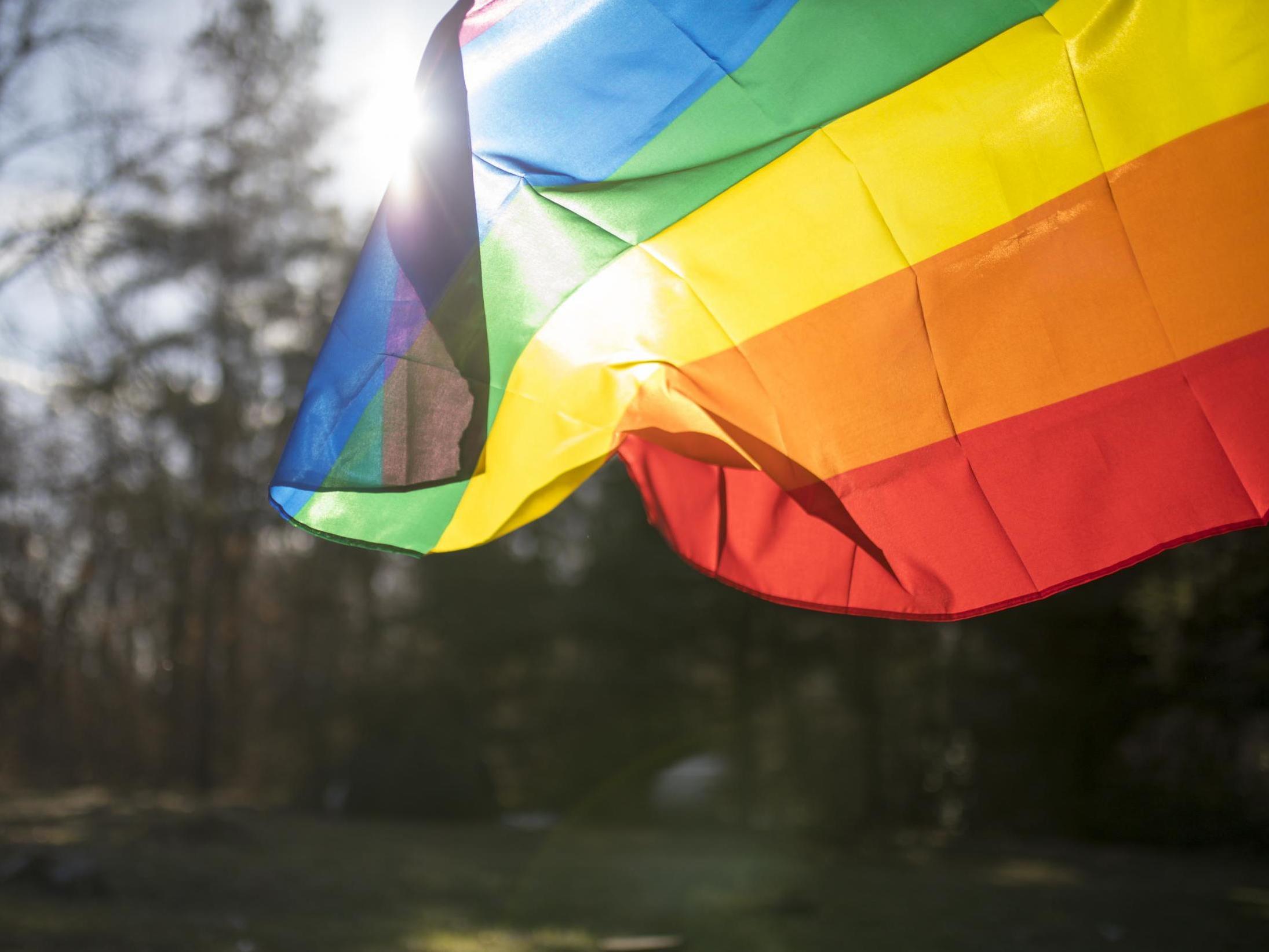Nearly half of school pupils say friends use discriminatory language towards LGBT+ people
‘It was painful for me – it made me feel like I shouldn’t really be living’

Your support helps us to tell the story
From reproductive rights to climate change to Big Tech, The Independent is on the ground when the story is developing. Whether it's investigating the financials of Elon Musk's pro-Trump PAC or producing our latest documentary, 'The A Word', which shines a light on the American women fighting for reproductive rights, we know how important it is to parse out the facts from the messaging.
At such a critical moment in US history, we need reporters on the ground. Your donation allows us to keep sending journalists to speak to both sides of the story.
The Independent is trusted by Americans across the entire political spectrum. And unlike many other quality news outlets, we choose not to lock Americans out of our reporting and analysis with paywalls. We believe quality journalism should be available to everyone, paid for by those who can afford it.
Your support makes all the difference.Nearly half of school pupils have heard friends use language that is discriminatory or negative towards LGBT+ students, research finds.
More than one in three (35 per cent) young people have been called gay or lesbian as an insult, according to the new survey from The Diana Award charity.
The poll, of children aged between 11 and 16, found that nearly half of young people (43 per cent) have heard their friends use language that is discriminatory or negative towards being LGBT+.
And one in five (17 per cent) have been called a homophobic, biphobic or transphobic insult.
Tom Broughton, a 19-year old who was bullied at school, said: “It was homophobic bullying for being different because I’m gay.
“I didn’t feel worthy and it was painful for me – it made me feel like I shouldn’t really be living.
“They actually told me to die. I would go home and cry and wish I could fall asleep and not wake up.”
The survey also reveals that 45 per cent of young people have heard their friends use discriminatory or negative language towards other students about their race or skin colour.
More than half (58 per cent) say their school has never taught LGBT+ focused lessons, while nearly two-thirds (65 per cent) have heard the phrases “that’s so gay” or “you’re so gay” used in school.
The charity, which is launching a partnership with musical Everybody’s Talking About Jamie, is urging schools to celebrate what makes pupils unique during Anti-Bullying Week (12-16 November).
Ministers announced last week that Scotland would become the first country in the world to ensure its education system recognises the issues faced by the LGBT+ community.
Campaigners have been calling on the government to amend its draft relationships and sex education guidance to ensure all schools in England promote the acceptance of LGBT+ people.
Just last week, singer Will Young called for action over the “misappropriation of the word gay” in the classroom. He accused ministers in recent years of doing nothing to tackle the issue.
Alex Holmes, deputy CEO of The Diana Award, said: “Sadly, we know at the charity that school can be a place where young people don’t feel accepted and are targeted for their identity.
“We are calling on schools to do more this Anti-Bullying Week to tackle all forms of bullying, particularly in light of this research.”
Sidonie Bertrand-Shelton, head of education programmes at LGBT+ rights’ group Stonewall, said: “Teaching about the diversity that exists in the world means that children from all families feel included and helps all young people understand that LGBT people are part of everyday life.
“In schools that teach about LGBT issues, LGBT young people are more likely to feel welcomed, included and accepted. A crucial part of tackling these challenges is equipping schools with the tools they need to tackle bullying and deliver an LGBT-inclusive curriculum.”
Paul Whiteman, general secretary of school leaders’ union NAHT, said: “We haven’t made as much progress as we should on LGBT+ rights in schools. We need to change that. Homophobic and transphobic bullying towards staff and pupils is wholly unacceptable.
“School should be a place where everyone feels accepted and included, and where difference is embraced and understood.
“Schools decide the kind of society that we have, they transform children into citizens of the world, and if we aren’t getting the treatment of LGBT+ pupils and teachers right in schools then we won’t be getting it right in society.”
Join our commenting forum
Join thought-provoking conversations, follow other Independent readers and see their replies
Comments